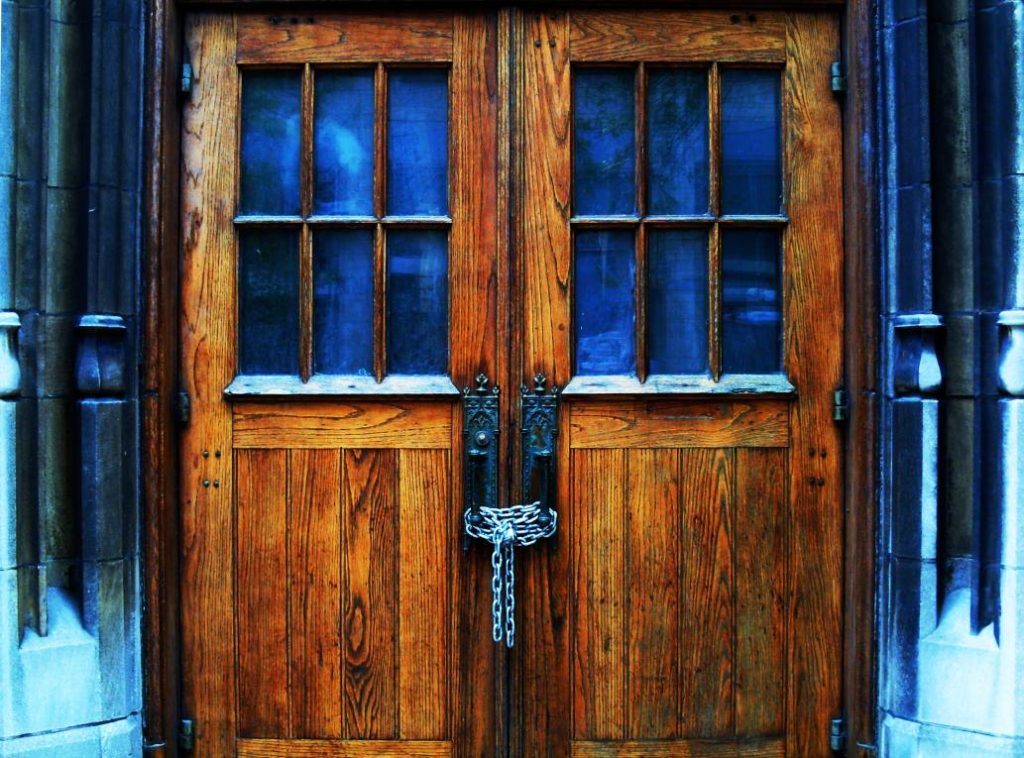Times of stress always show whether there is true vitality with an organization, and this is certainly true today with churches. The current national shutdown gives us an opportunity to show that the church is in fact a living community of people, not just a building where a meeting is conducted once a week. As my own pastor recently said to me “the church in fact exists to advance God’s cause in whatever sphere of society we live in. We exist to know God, love God, worship God, and commend the good news of Jesus Christ to the world.”
At my church, Presbyterian Church of the Atonement in Silver Spring, Maryland, almost all activities are continuing on a virtual basis, from the Sunday sermon to prayer groups and individual contact among members.
Action was taken immediately after the governor’s first order to restrict meetings to 250 people in the first part of March. From Sunday March 15 on, both in person worship services and all other in person group activities at church ceased. This does not give the opportunity to celebrate communion, but almost all other activities do occur virtually.
Since state regulations in Maryland, as is common in other states, now prohibits meetings of more than ten people, contact in our church family must be by livestream, video teleconferencing, e-mail, text, and telephone.
The basics of the Sunday worship service remain intact, now livestreamed and accessible via the same links for later viewing. There is a musical call to worship, followed by a hymn or worship song with which one can sing along at home. Then there is a prayer of confession of sin, assurance of pardon, children’s sermon, followed by the main sermon, pastoral prayer, a final hymn, and benediction.
The first way in which direct person to person contact is maintained by the body of Christ at our church is through elder contact. Once the Covid-19 crisis started, the congregation was divided among the elders, with each elder responsible for maintaining contact with a portion of the congregation. Each church member receives either an e-mail, telephone call, or some other electronic outreach over the course of the week. Additionally, individual members likewise have been contacting other church members. Voice contact is a very warm and personal way to overcome the “social distancing” mandated by state guidelines, and can lead to a heartening extended conversation. Those who live alone especially need to be contacted, as well as the several persons now out of work.
With the capacity for private electronic, video, and audio telecommunication greatly expanded in the last generation, most church activities have been able to continue on a virtual basis. Adult Sunday Schools at Atonement are topical and are not continuing, but children’s Sunday School does continue on a virtual basis. Also continuing is the Compass, or new members’ class.
Youth activities include the Sunday night hang time, which continues on a virtual basis, while electronic devotionals are supplied to the church’s youth by the Director of Youth Ministries.
Similarly, the church’s Care Coordinator communicates weekly with the elderly and infirm, making telephone contact or in-person visits where necessary or desirable, and doing grocery shopping where people cannot shop at the grocery store.
The church’s small groups, sometimes called life groups, now hold video teleconference meetings to study the Bible text of the previous Sunday’s sermon, to study the sermon itself, and have group prayer. Similarly, the church’s staff meet once a week via video connection, as does (monthly) the church session (board of elders) and diaconate (board of deacons).
Two other weekly items are continuing via e-mail. There is first the Atonement Life supplement to the church bulletin, which includes pastoral messages, missionary prayer requests, news regarding the congregation, and any upcoming items on the church schedule (which now must be virtual activities). Secondly, periodic prayer requests from the church office, which have always been sent via e-mail, still continue.
Holy Week services have not been eliminated this year but will be streamed. Thus includes a Maundy Thursday service on April 9, and a Good Friday service on April 10. The church is also participating in the denomination’s prayer and fasting in connection with the coronavirus epidemic, which will be held on Good Friday. This is a day of prayer and fasting our denomination will hold with several other denominations. But every day the current crisis continues, as surely is the case with other churches, we pray intently for an end to the coronavirus pandemic, for those suffering that they will recover, for those in economic distress, both for individuals and businesses, that they would be rescued from disaster, and that the nation and the world might soon return to normal life.





Comment by Donald on April 12, 2020 at 5:45 am
Our little rural congregation in Virginia will be holding a drive-in worship this morning. I continue to give thanks that years ago my parents made me take accordion lessons. This enables me to provide outdoor music for not only our congregation but also for our subdivision and various places where gatherings take place.
Telephone contact and weekly pastoral letters with the sermons that I continue to write mirror what Christians in other places, who are literally under the gun for worshiping together, have done for generations.